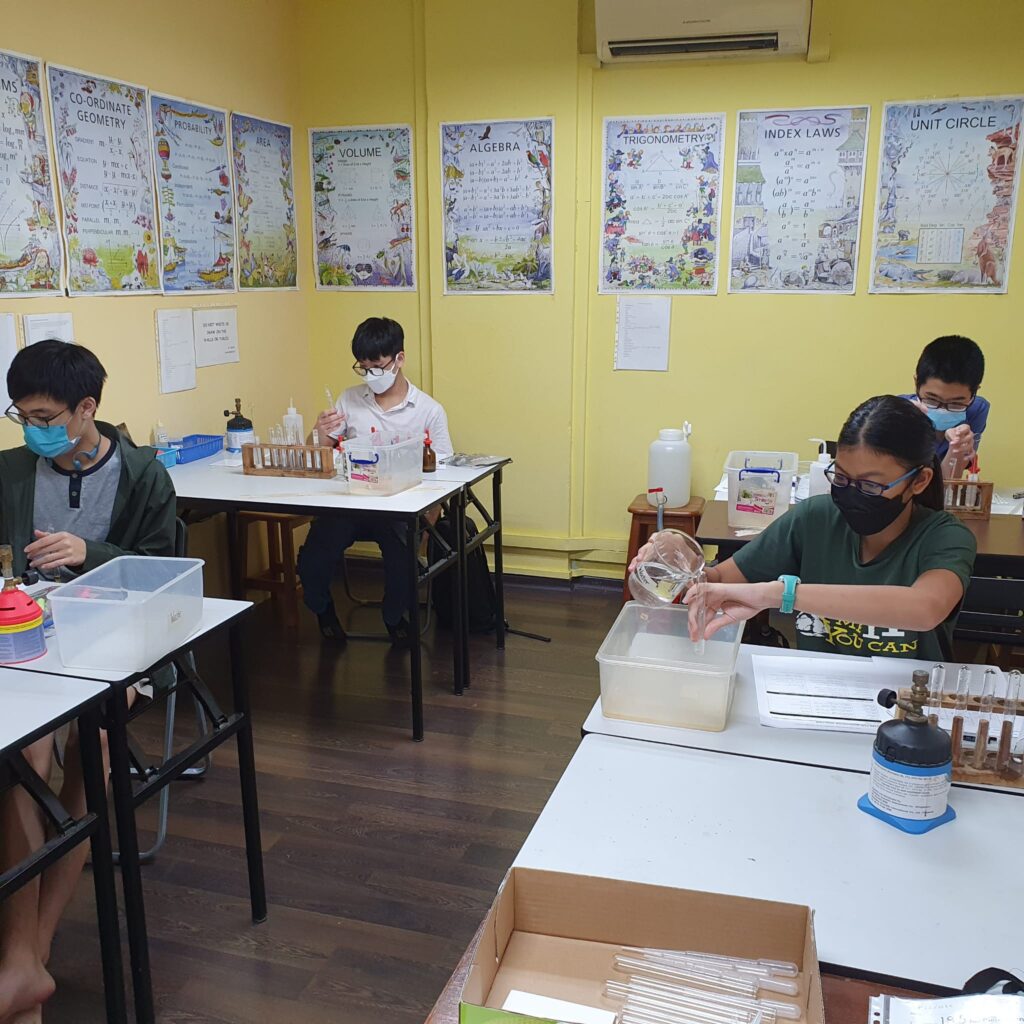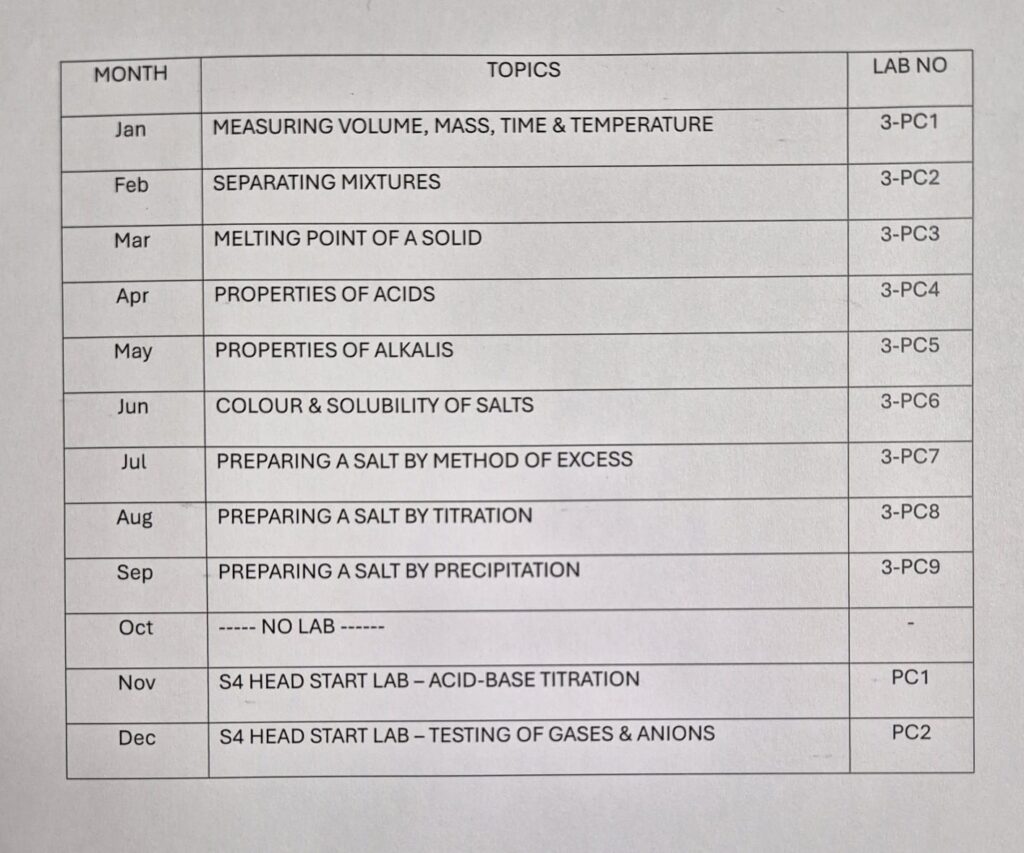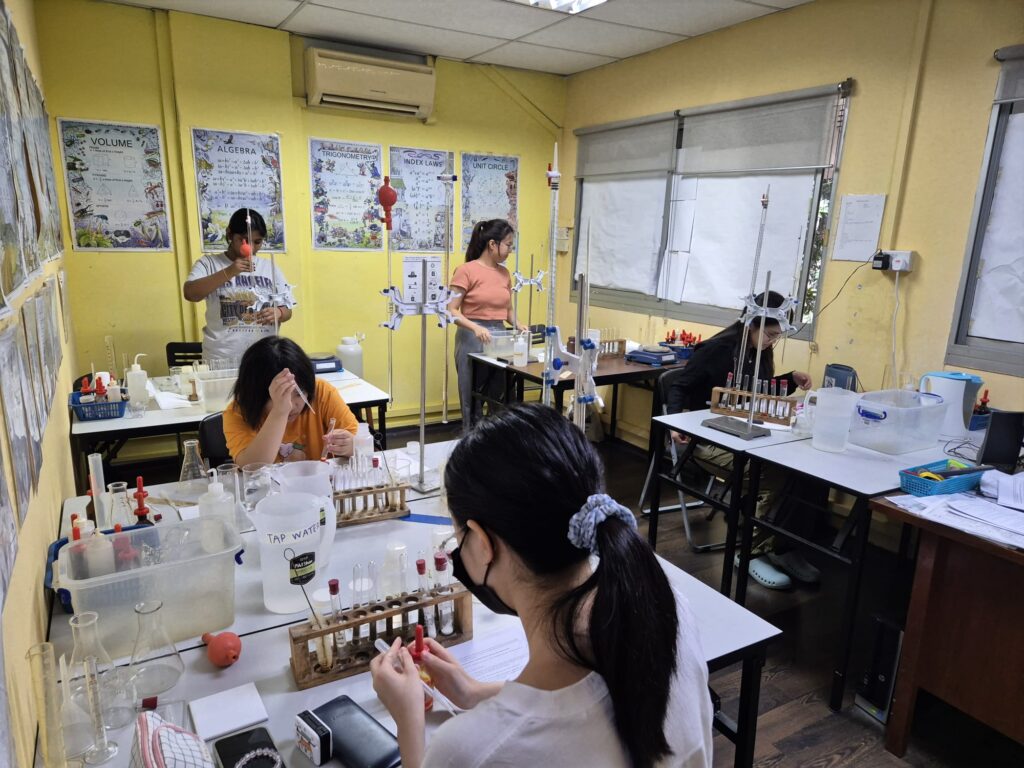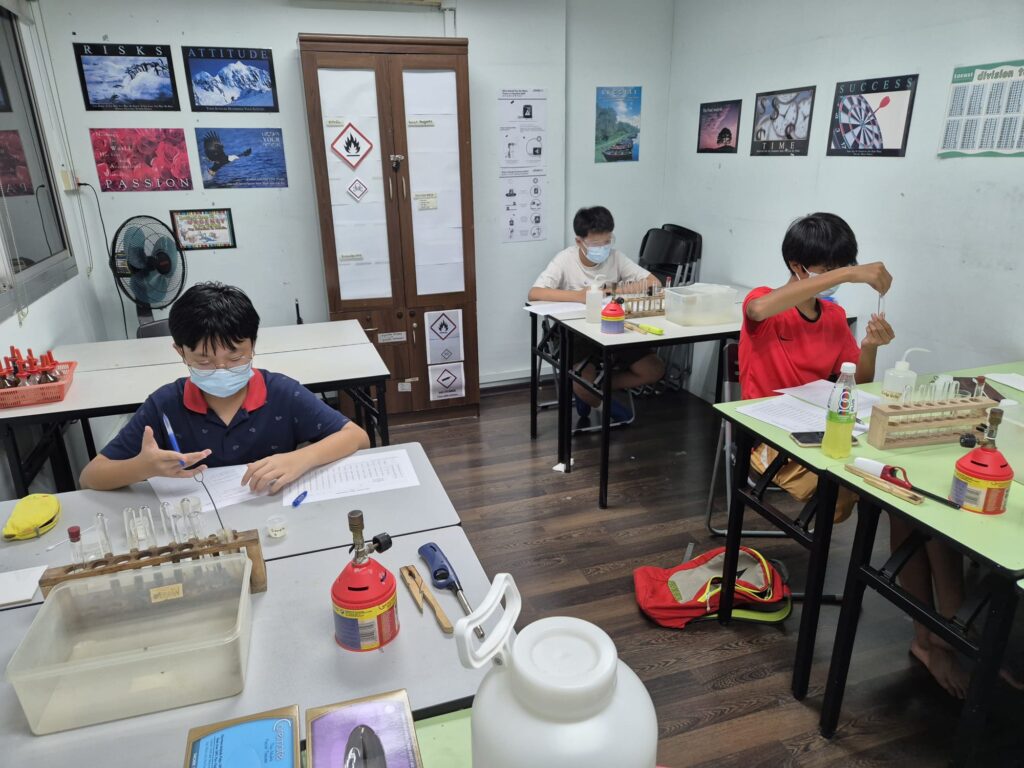This page is for students who will be doing our 2-year Science Practical Programme, from Sec 3 to Sec 4, typically for homeschoolers or students who have left secondary school at Sec 2.
*Enjoy huge discounts on fees if your lab sessions start in January! Send a message to 88765498 for details.
SEC 3 CHEMISTRY PRACTICAL SCHEDULE
PRACTICAL TUITION FEES
PRACTICAL DAYS AND TIMINGS
HOW TO BOOK A LAB SESSION:
(1) Decide which Program or Lab sessions you need or most suitable for, by visiting the webpages of the practical subjects you are interested in (if you can’t find the labs you need, Whatapps us at 88765498).http://wa.link/w0xxk2
(2) Whatsapp or Message our staff at 88765498 with your Name, Private or School Candidate, A or O level, Subject or Lab Name (e.g Lab PP2), Date and Time of Lab. (Our staff will then guide you on how to register and make payment. If you are not sure about the lab sessions, just state your Name and the Subjects and we will get back to you)
(3) Register Online by clicking below:
(4) Pay Registration fee of $50 via Paynow or funds transfer.
(5) Make the required payment for each lab session at least 7 days before the date of the lab session. (You may also pay for several sessions at one go to ensure that you will have a place in future slot)
MOE/SEAB SYLLABUS FOR O-LEVEL CHEMISTRY PRACTICAL
Paper 3 (Practical) is weighted to 20% of the assessment.
Candidates are expected to have been exposed to a range of topics and experimental techniques such as:
- Titration, e.g. acid-base titration (with suitable indicators such as methyl orange, screened methyl orange,
and thymolphthalein). Other types of titrations may also be required, and where appropriate, sufficient
working details will be given. - Speeds of reaction that may involve measuring of quantities, e.g. temperature, volume, length, mass or time
measurements - Experiments involving separation techniques such as simple paper chromatography, filtration and distillation
- Salt preparation
- Gas collection
- Qualitative inorganic analysis involving an element, a compound or a mixture, including displacement
reactions and tests for oxidising and reducing agents. Candidates should be familiar with the reactions
of cations, reactions of anions and tests for gases as detailed in the Notes for Qualitative Analysis.
Candidates would not be required to carry out tests involving Pb2+ ions or sulfur dioxide gas.
Reactions involving ions not included in the Notes for Qualitative Analysis may be tested: in such cases,
candidates will not be expected to identify the ions but only to draw conclusions of a general nature.
Candidates should not attempt tests, other than those specified, on substances, except when it is
appropriate to test for a gas. - Qualitative organic analysis requiring a knowledge of simple organic reactions as outlined in Section VI,
e.g. test-tube reactions indicating the presence of unsaturation (C=C) may be set, but this would be for
the testing of observation skills and drawing general conclusions only.
Based on the above syllabus, we have selected several lab topics which students need to complete to achieve the above practical exam objectives.
Note: For training purposes, Pure and Combined Science students attend the same practical sessions as the syllabus for practicals is the same for both. The only difference between the two kinds of practicals is there are no Planning questions for Combined Science students.
SEC 3-4 CHEMISTRY PRACTICAL TOPICS
LAB 3-PC1 : MEASURING VOLUME, MASS, TIME & TEMPERATURE (Available session:
LAB 3-PC2 : SEPARATING MIXTURES (Available session:
LAB 3-PC3 : MELTING POINT OF A SOLID (Available session:
LAB 3-PC4 : PROPERTIES OF ACIDS (Available session:
LAB 3-PC5 : PROPERTIES OF ALKALIS (Available session:
LAB 3-PC6 : COLOUR & SOLUBILITY OF SALTS (Available session:
LAB 3-PC7 : PREPARING A SALT BY METHOD OF EXCESS (Available session:
LAB 3-PC8 : PREPARING A SALT BY TITRATION (Available session:
LAB 3-PC9 : PREPARING A SALT BY PRECIPITATION (Available session:
For Sec 4 labs, continue with labs PC1 to PC16M from the standard Sec 4 labs. Click on following link to see these labs:
O-LEVEL CHEMISTRY PRACTICAL
ADDITIONAL S3 LABS
LAB 3-PC10 : TESTING FOR GASES
LAB 3-PC11 : TESTING FOR CATIONS
LAB 3-PC12 : TESTING FOR ANIONS
LAB 3-PC 13 : IDENTIFYING UNKNOWN SALTS
LAB 4-PC14 : ACID-BASE TITRATION
LAB 4-PC15 : REDOX TITRATION
LAB 4-PC16 : IODIMETRIC TITRATION
LAB 4-PC17 : THERMOMETRIC TITRATION
LAB 4-PC18: IDENTIFYING OXIDISING AND REDUCING AGENTS
LAB 4-PC19 : INVESTIGATING REACTIONS OF METALS
LAB 4-PC20 : INVESTIGATING DISPLACEMENT REACTIONS OF THE HALOGENS
LAB 4-PC21 : INVESTIGATING ENERGY CHANGES IN CHEMICAL REACTIONS
LAB 4-PC22 : EFFECT OF CONCENTRATION ON SPEED OF REACTION
LAB 4-PC23 : EFFECT OF TEMPERATURE ON SPEED OF REACTION
LAB 4-PC24 : INVESTIGATING ALKANES, ALKENES AND ALCOHOLS




